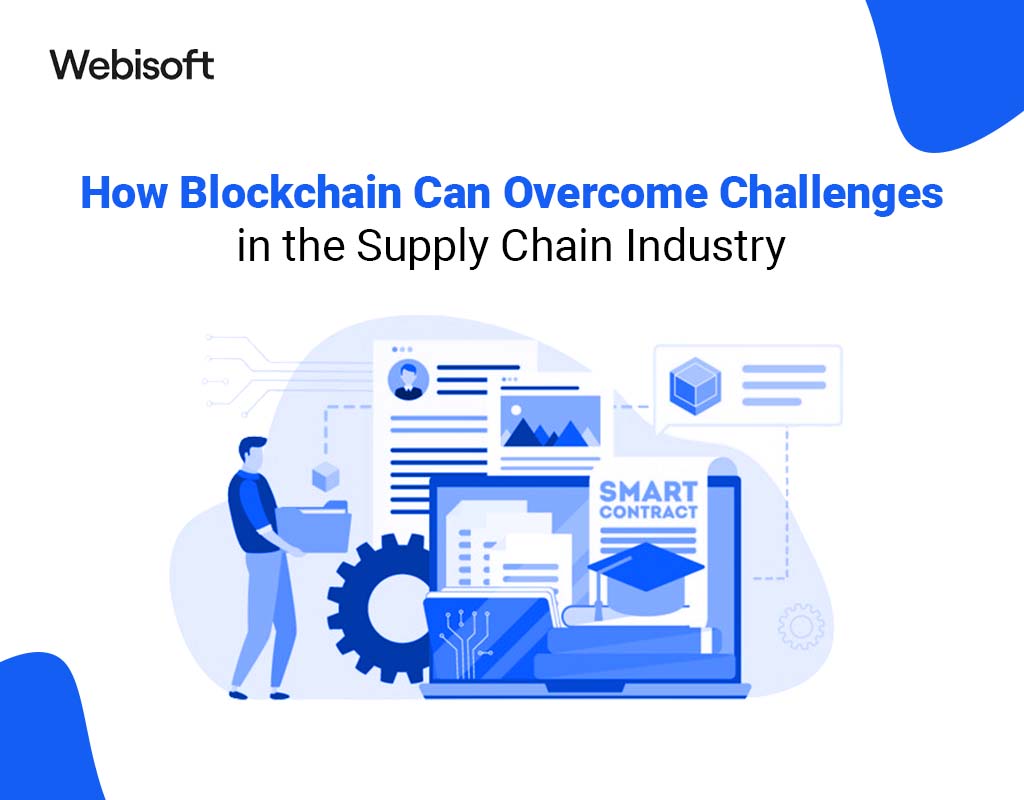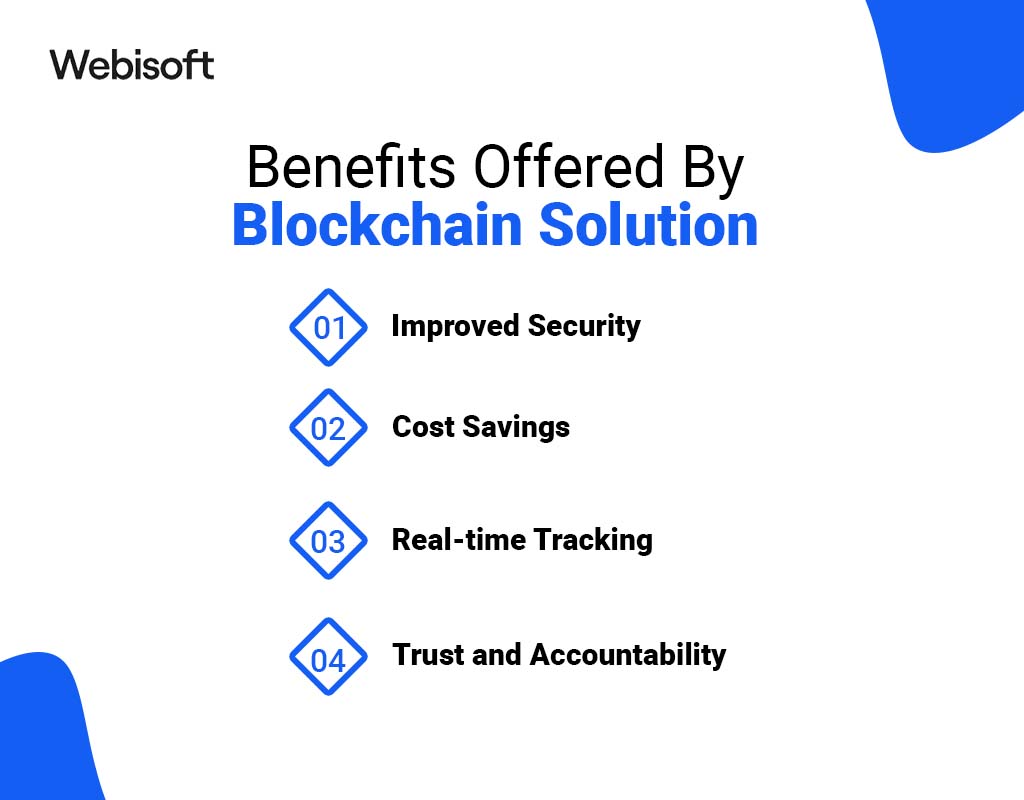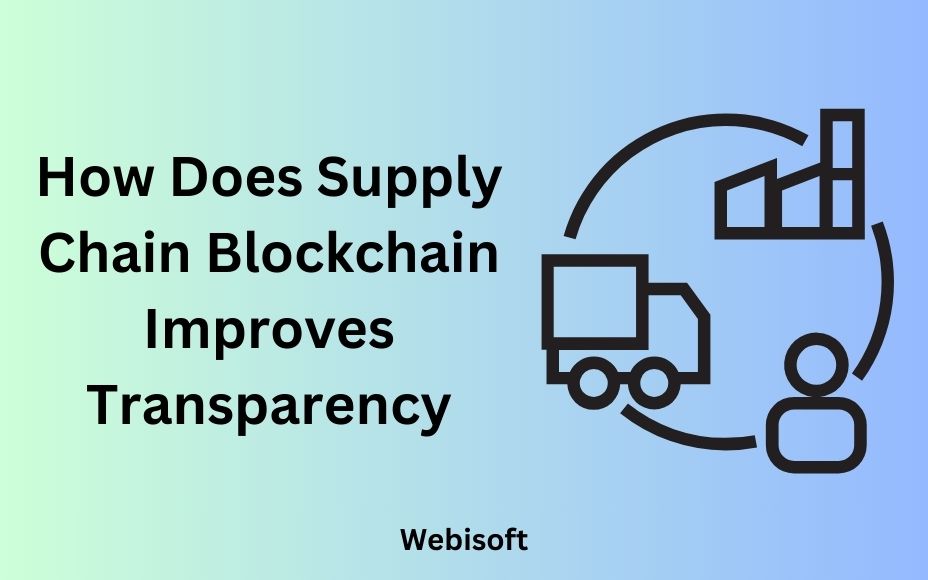In the world of supply chain management, the need for transparency, accountability, and traceability is paramount.
The introduction of supply chain blockchain technology is revolutionizing the industry, offering solutions to the challenges that have long plagued it.
This article delves into the transformative power of blockchain in the supply chain industry. It will provide a comprehensive understanding of its benefits, use cases, and how it can offer end-to-end traceability.
Contents
The Challenges In The Supply Chain
Navigating the intricate network of manufacturers, suppliers, distributors, and retailers in the supply chain industry is challenging.
The inherent complexity of this industry gives rise to numerous challenges that often hinder its smooth operation. Let’s delve into these challenges in detail.
1. Lack of Transparency
Transparency is a crucial element in the supply chain. However, maintaining it becomes a Herculean task when multiple stakeholders are involved.
- Multiple Stakeholders: The supply chain involves a multitude of players. Each one has its own set of operations, making transparency a challenge.
- Information Asymmetry: Not all stakeholders have access to the same information. This asymmetry often leads to mistrust and miscommunication.
- Data Silos: Information often gets trapped in organizational silos. It prevents a clear view of the entire supply chain.
Achieving complete transparency across the supply chain is a daunting task. Yet, it’s essential for efficient operations and building trust among stakeholders.
2. Counterfeit Products
The supply chain industry is constantly battling the menace of counterfeit goods. A secure supply chain system is necessary to address this problem
- Security Loopholes: Current systems lack robust security measures. It makes them vulnerable to infiltration by counterfeit goods.
- Tampering: Counterfeiters often tamper with product information. This makes detection difficult.
- Brand Reputation: Counterfeit products tarnish the brand’s reputation. They also lead to significant financial losses.
The fight against counterfeit goods requires a secure, tamper-proof system that can ensure the authenticity of products.
3. Inefficiencies
Inefficiencies are a common problem in the supply chain industry. Manual processes and outdated systems often lead to errors and operational inefficiencies.
- Manual Processes: Many supply chain operations still rely on manual processes. These are prone to human error and are time-consuming.
- Outdated Systems: Legacy systems lack the agility to adapt to changing market dynamics. This leads to inefficiencies.
- Lack of Integration: Disparate systems often need to communicate with each other. This results in data duplication and process inefficiencies.
Addressing these inefficiencies requires modern, integrated systems that streamline operations and reduce errors.
4. Traceability
Tracing products back to their origin is critical to supply chain management. However, it’s often a cumbersome and inaccurate process.
- Complex Supply Chains: The complexity of supply chains makes traceability challenging. Products often pass through multiple hands before reaching the end consumer.
- Lack of Real-Time Data: Tracing a product’s journey is like finding a needle in a haystack without real-time data.
- Inaccurate Records: Inaccurate or incomplete records further complicate the traceability process.
Effective traceability requires a system that can track a product’s journey in real time, from origin to consumer, with complete accuracy.
The supply chain industry faces numerous challenges, from lack of transparency to inefficiencies, counterfeit products, and traceability issues.
Addressing these challenges requires innovative solutions that streamline operations, enhance transparency, ensure product authenticity, and improve traceability.
How Blockchain Can Overcome Challenges in the Supply Chain Industry
With its decentralized and distributed ledger system, blockchain technology presents a promising solution to the challenges plaguing the supply chain industry. Let’s explore how blockchain can effectively address these issues.

1. Enhanced Transparency
Transparency is a cornerstone of effective supply chain management. Blockchain technology, with its immutable nature, can significantly enhance this transparency.
- Immutable Records: Once your transaction is recorded on a blockchain, it cannot be altered. This ensures the integrity of the data.
- Visibility: Every transaction on the blockchain is visible to all participants. This eliminates information asymmetry and fosters trust.
- Data Accessibility: Blockchain allows for easy access to data. This can break down organizational silos and provide a holistic view of the supply chain.
Blockchain can significantly enhance transparency in the supply chain industry through these features.
2. Counterfeit Prevention
Counterfeit goods pose the greatest threat to the supply chain industry. Blockchain’s tamper-proof nature can help combat this issue with Secure Blockchain.
- Tamper-Proof: Blockchain records are nearly impossible to tamper with. This makes it difficult for counterfeit goods to infiltrate the supply chain.
- Verification: Blockchain allows for easy verification of product authenticity. This can help prevent the circulation of counterfeit goods.
- Brand Protection: By ensuring product authenticity, blockchain can protect brand reputation and prevent financial losses due to counterfeiting.
Thus, blockchain can be crucial in counterfeit prevention in the supply chain industry.
3. Increased Efficiency
Efficiency is critical to the smooth operation of the supply chain. Blockchain can automate and streamline processes, thereby increasing efficiency.
- Automation: Blockchain can automate various supply chain processes. This reduces the scope for human error and speeds up operations.
- Integration: Blockchain can integrate disparate systems, preventing data duplication and streamlining processes.
- Real-Time Tracking: Blockchain enables real-time tracking of goods. This enhances visibility and control, leading to increased efficiency.
By automating and streamlining processes, blockchain can significantly increase efficiency in the supply chain industry.
4. Improved Traceability
Traceability is a significant challenge in the supply chain industry. Blockchain technology can provide a clear and accurate product history, improving traceability.
- Product History: Blockchain records every transaction, providing a clear product journey history.
- Real-Time Data: Blockchain provides real-time data, making tracing a product’s journey easier.
- Accuracy: Blockchain records are highly accurate, ensuring reliable traceability.
Blockchain can significantly improve traceability in the supply chain industry by providing a clear and accurate product history.
In conclusion, blockchain technology can effectively address the challenges in the supply chain industry.
By enhancing transparency, preventing counterfeiting, increasing efficiency, and improving traceability, blockchain supply chain can revolutionize the supply chain industry, making it more secure, efficient, and reliable.
Benefits Offered By Blockchain Solution

Blockchain technology’s advent in the supply chain industry brings with it a plethora of benefits.
The advantages of implementing a supply chain blockchain are manifold, from improved security to cost savings, real-time tracking, and fostering trust and accountability. Let’s delve into these benefits in detail.
1. Improved Security
Security is paramount in the supply chain industry. With its decentralized nature and cryptographic security, blockchain offers a robust solution.
- Decentralization: Blockchain operates on a decentralized network. This means there’s no central point of failure, enhancing security.
- Cryptography: Blockchain uses advanced cryptographic techniques. These ensure that data is secure and tamper-proof.
- Immutable Records: Once a transaction is recorded or developed on the blockchain, it cannot be altered. It further enhances security.
Thus, blockchain can significantly improve security in the supply chain industry, protecting sensitive data and preventing unauthorized access.
2. Cost Savings
Efficient cost management is crucial for the profitability of any business. Blockchain can help achieve significant cost savings in the supply chain industry.
- Elimination of Intermediaries: Blockchain allows for peer-to-peer transactions, eliminating the need for intermediaries. This can significantly reduce costs.
- Reduced Inefficiencies: By automating and streamlining processes, blockchain can reduce inefficiencies. This leads to cost savings.
- Fraud Prevention: Blockchain’s tamper-proof nature can prevent fraudulent activities, saving businesses from financial losses.
By eliminating intermediaries, reducing inefficiencies, and preventing fraud, blockchain can help businesses save costs in the supply chain industry.
3. Real-time Tracking
Real-time tracking of goods is a game-changer in the supply chain industry. Blockchain technology makes this possible.
- Real-Time Data: Blockchain provides real-time data. This allows businesses to track goods in transit, enhancing visibility and control.
- Transparency: With every transaction recorded and visible to all, blockchain provides complete transparency. This facilitates real-time tracking.
- Efficiency: Real-time tracking can help businesses identify and address issues promptly. This increases efficiency and customer satisfaction.
Thus, blockchain can enable real-time tracking of goods, providing businesses with enhanced visibility and control over their supply chain.
4. Trust and Accountability
Trust and accountability are key to successful business relationships. Blockchain fosters these by recording every transaction and making it visible to all stakeholders.
- Transparency: Blockchain’s transparency ensures all stakeholders access the same information. It fosters trust.
- Accountability: With every transaction recorded, stakeholders are accountable for their actions. It promotes ethical business practices.
- Dispute Resolution: In case of disputes, blockchain records can serve as an irrefutable source of truth. This facilitates quick and fair resolution.
By fostering trust and accountability among stakeholders, blockchain can facilitate smoother and more ethical business relationships in the supply chain industry.
The benefits of implementing a supply chain blockchain are numerous. From improved security to cost savings, real-time tracking, and fostering trust and accountability, blockchain can revolutionize the supply chain industry, making it more secure, efficient, and reliable.
Businesses continue to recognize these benefits. Blockchain’s adoption in the supply chain industry is set to increase, paving the way for a more transparent, efficient, and secure future.
Use Cases of Blockchain In Supply Chain
Blockchain technology is making significant strides in various sectors of the supply chain industry. Its potential to transform traditional processes is being recognized across different sectors. Let’s explore some of these use cases in detail.
1. Food Industry
In the food industry, blockchain technology traces food and other products from farm to table. This ensures food safety and quality in food supply chain.
- Traceability: Blockchain records the journey of food products from the farm to the consumer. This ensures traceability and transparency.
- Food Safety: By tracing the origin and journey of food products, blockchain can help identify and prevent food safety issues.
- Quality Assurance: Blockchain provides a transparent platform for verifying the quality of food products.
Thus, blockchain technology can significantly enhance food safety and quality in the food industry.
2. Pharmaceuticals
In the pharmaceutical industry, blockchain technology is being used to track and verify the authenticity of medicines. This helps prevent counterfeit drugs.
- Authenticity Verification: Blockchain allows for easy verification of the authenticity of medicines. This can prevent the circulation of counterfeit drugs.
- Traceability: Blockchain records the journey of medicines from the manufacturer to the consumer. This ensures traceability and transparency.
- Regulatory Compliance: Blockchain provides a transparent and secure platform for ensuring regulatory compliance in the pharmaceutical industry.
Thus, blockchain technology can play a crucial role in ensuring the authenticity of medicines and preventing counterfeit drugs in the pharmaceutical industry.
3. Logistics
In the logistics sector, blockchain technology enhances efficiency and visibility. This ensures accurate and timely delivery of goods.
- Real-Time Tracking: Blockchain enables real-time tracking of goods. This enhances visibility and control over the logistics process.
- Efficiency: Blockchain can automate and streamline logistics processes. This increases efficiency and reduces errors.
- Transparency: With every transaction recorded and visible to all, blockchain provides complete transparency in the logistics process.
Thus, blockchain technology can significantly enhance efficiency and visibility in the logistics sector, ensuring accurate and timely delivery of goods.
4. Manufacturing
In the manufacturing sector, blockchain technology is being used to provide a transparent and secure platform for tracking components and finished goods.
- Traceability: Blockchain records the journey of components and finished goods. This ensures traceability and transparency.
- Quality Assurance: Blockchain provides a transparent platform for verifying the quality of components and finished goods.
- Regulatory Compliance: Blockchain provides a transparent and secure platform for ensuring regulatory compliance in the manufacturing industry.
Thus, blockchain technology can significantly enhance the manufacturing industry’s traceability, quality assurance, and regulatory compliance.
Blockchain technology is being adopted in various sectors of the supply chain industry, from the food industry to pharmaceuticals, logistics, and manufacturing.
It’s potential to enhance transparency, ensure authenticity, increase efficiency, and ensure regulatory compliance is recognized and leveraged across these sectors.
As the technology matures, its adoption will increase, paving the way for a more efficient and transparent supply chain industry.
End Note
The supply chain blockchain is a game-changer, offering end-to-end traceability, enhanced transparency, and improved efficiency.
As the technology matures, its adoption is set to increase, transforming the supply chain industry and setting new standards for operations and processes. The transformative power of blockchain in the supply chain industry is undeniable.
By offering end-to-end traceability, enhanced transparency, and improved efficiency, it’s set to revolutionize the industry, setting new standards for operations and processes. The future of supply chain management is here, powered by blockchain.
However, To add efficiency and transparency to the supply chain with the Blockchain, Webisoft is here to help you. Contact us and our prominent blockchain experts to get help.
